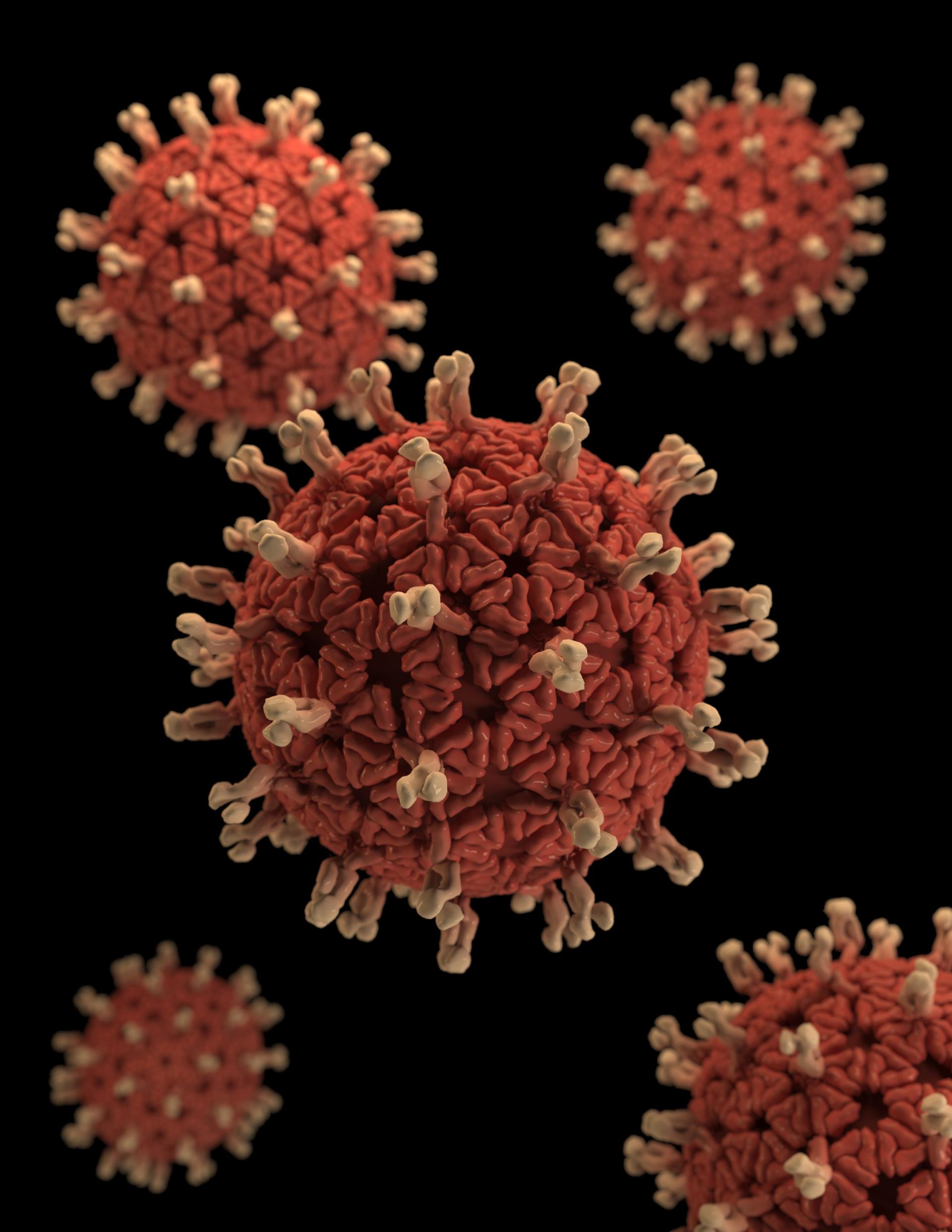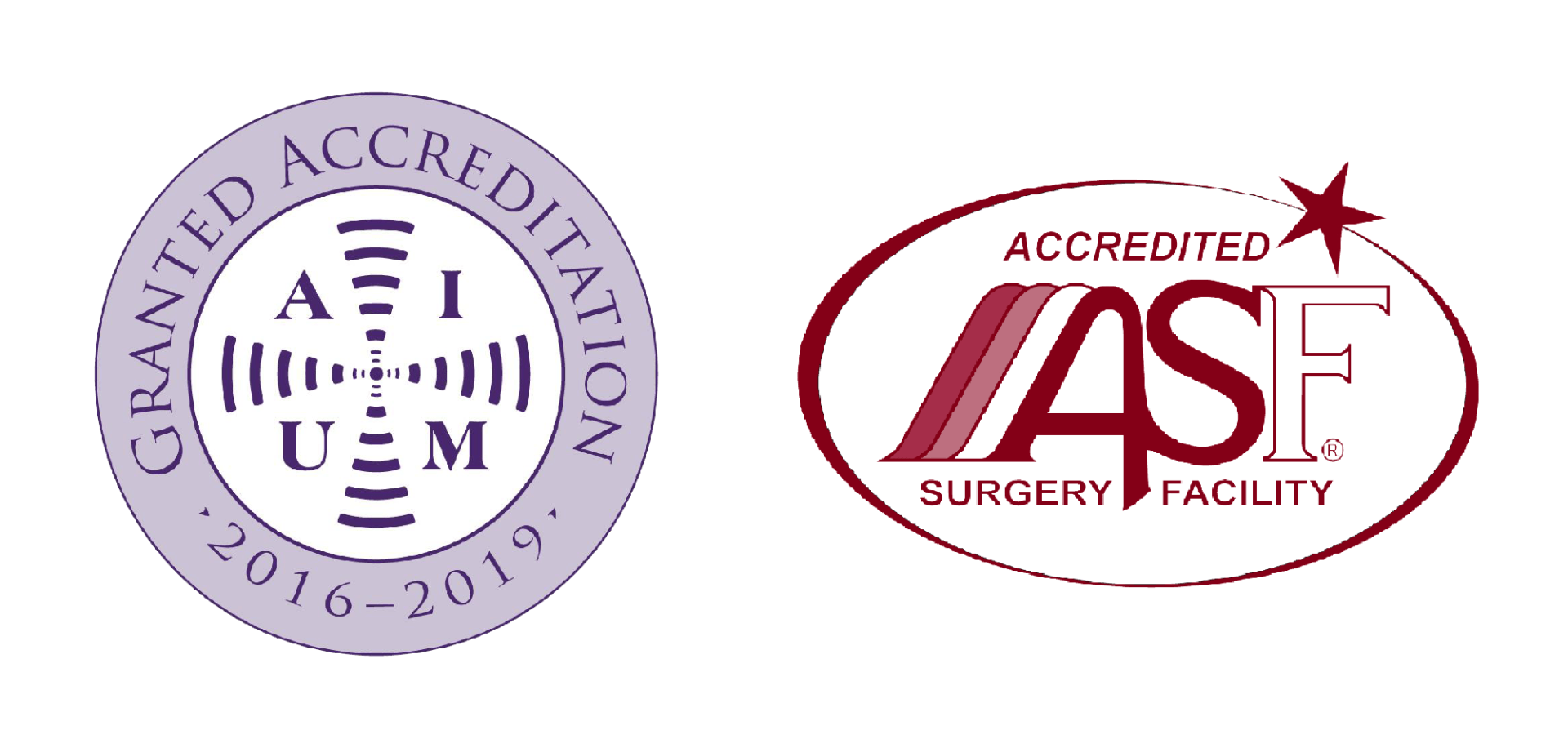Birth Control
Women's Health Care of New England • September 1, 2019
Birth control is a term used to define any method or practice that is used to prevent pregnancy. There are many different types of birth control and each is different in the way it’s used, its effectiveness, its side effects, and its costs. The information provided here can help you decide what form of birth control is best for you, but it’s important to discuss your options with your own doctor.
Overall, your choice of birth control should depend on factors such as a your health, frequency of sexual activity, number of partners, protection from sexually transmitted infections and desire to have children in the future.
HOW EFFECTIVE IS BIRTH CONTROL?
The only 100% effective form of birth control (or 0% failure rate) is abstinence (not having sexual intercourse). But here is a comparison of the various types of birth control and their effectiveness in preventing pregnancy. The rates listed are the failure rates of each method (or the percent of pregnancies that method did not prevent) and apply when they are used according the manufacturers’ directions and in full compliance.

Women’s Healthcare of New England is seeing patients and actively screening each patient to ensure they do not expose our office or patient community to any illness. If you have a medical emergency, please do not show up at our office or at the hospital, but instead call ahead and find out the recommended course of action. Following appropriate guidelines and practicing proper technique will benefit both patients and clinicians and better prevent the further spread of the COVID-19 virus. The most important thing to do is to remain calm and think clearly. Key guidelines to stay safe: • Wear a mask • Limit your interactions, and keep a 6 foot distance from others. • Wash your hands (for at least 20 seconds) often throughout the day • Don’t touch your face • Keep surfaces clean These steps will help to reduce the spread of the virus and hopefully prevent further exposure in uninfected individuals. On a larger scale, the government’s response to the coronavirus (COVID-19) outbreak is constantly evolving, we recommend that you stay up-to-date on information from verified sources. Learn more online from the Centers for Disease Control and Prevention (CDC) https://www.cdc.gov/coronavirus/2019-ncov/index.html State of Connecticut https://portal.ct.gov/Coronavirus. By phone, you may contact 1-800-CDC-INFO, call 2-1-1, or text “CTCOVID” to 898211 for more information. To receive updates about the virus and how the government is responding to it, you may subscribe to the CDC’s Subscription Service https://www.cdc.gov/Other/emailupdates/.

GOOD NEWS With early detection screening, you can lead a wonderfully full life without necessarily, the need for a mastectomy ONE SIMPLE GUIDELINE Everyone should start annual screening mammograms at age 40 regardless of risk factors and family history. Connecticut Law States "If your mammogram demonstrates that you have dense breast tissue, which could hide small abnormalities, you might benefit from supplementary tests, which can include a breast ultrasound screening or a breast MRI examination, or both, depending on your individual risk factors." (Senate Bill 458) At Women's Health Care of New England, every mammogram requisition gets marked "Follow with breast ultrasound for dense breasts or other masses". Yearly breast imaging is not just for you, it's for your whole family. Jay Ugol, MD Staff Member at Women’s Health Care of New England Fellow of The American College of OB/GYN

Types There are several different types of incontinence. The two most common in women are stress incontinence and urge incontinence. Stress urinary incontinence is the loss of urine when a women coughs, sneezes, laughs or exercises. It is caused by a weakening of the tissues that support the bladder or the muscles of the urethra. Urge incontinence is the leakage of urine caused by overactive bladder muscles that contract too often or problems with the nerves that send signals to the bladder. People with a combination of both stress and urge incontinence are said to have mixed incontinence. In addition to leaking, some women may experience urinary urgency, frequency, pain or increased voiding during hours of sleep. Causes Incontinence may be caused by a variety of different factors such as urinary tract infections; medications; bladder growths; fistula formation; pelvic support problems or neuromuscular problems. Diagnosis Incontinence can be diagnosed by several methods. You may start by discussing your symptoms with your provider and undergo a pelvic exam in the office. Your physician may ask you to keep a voiding diary for a few days and to return for urodynamic testing. Urodynamic testing is an office procedure in which the bladder is filled through a catheter to see how much urine your bladder can hold and what makes you leak. Treatment There are many options for treatment such as lifestyle changes, bladder training, physical therapy, a vaginal pessary, medications and surgery. Some of the lifestyles changes that may help include weight loss, avoiding constipation, limiting caffeine and alcohol and smoking cessation. Bladder training can help you learn to go to the bathroom less frequently by retraining you bladder to hold more urine. The goal is to increase the time between voiding to a normal interval, every 3-4 hours. Kegel exercises tone your pelvic muscles. They can be done at home or with a physical therapist using a technique called biofeedback. A pessary is a silicone devise that can be placed in the vagina to help pelvic support. Your provider and fit you for the appropriate size and shape. There are several medications that help control unwanted bladder contractions associated with urge incontinence. Your provider can help you decide which medication would work best for you. Surgical options are also available and offer the highest cure rate for stress incontinence. Often treatments are most effective when used in combination. Summary Although leaking urine can be difficult to talk about, it is not normal at any age and is often treatable with simple measures. Talking about it with your healthcare provider is the first step in getting help for this problem that is affecting your lifestyle.

Cervical cancer screening is used to find changes in the cells of the cervix that could lead to cancer. Screening includes the Pap test and, for some women, testing for human papillomavirus (HPV). Cervical cancer screening is important because it usually takes three to seven years for high-grade cervical changes to become cancer. Regular screening gives patients and ob-gyns time to find cervical cell changes and discuss possible treatment before the cell changes become cancer. For guidelines on when and how often to screen, read the Cervical Cancer Screening FAQ .

I often receive this question from my adult patients. The old adage was to come in for the first GYN visit (which really meant exam) at age 18 “or sooner if they are sexually active." The American College of Obstetrics and Gynecology now recommends the first GYN visit take place between ages 13 and 15 - whether that includes an exam or not is a different issue. As noted by the American Academy of Pediatrics, (Pediatrics, 2013) sexual activity is, and has long been rare among those 12 and younger. By contrast, older teens (aged 17-19) are sexually active; however, approximately 30% of those aged 15-16, have had sex. We at Women's Health Care of New England encourage you to bring in your daughter/s for a "consult appointment". The focus of the appointment would be heavy or irregular menses or cramps, as well as STD prevention and birth control. We might ask your permission to talk with your daughter a few minutes alone, so that we might ask and answer any questions openly. We will inform her that this information is confidential and will not be shared with the parent unless she consents. We encourage you to contact our office for this most important initial visit. Jay Ugol, MD

I have a young woman in my office. She’s 18 heading off to college on a swimming scholarship. She would like to discuss starting a birth control method. ” I have pretty heavy and painful periods”, she says. “How about a seasonal pill?” I ask. “A seasonal pill will give you a menstrual period only 4 times a year compared to the usual 13”. “I don’t know”, she says, “Is it safe?” “Don’t I need a period to keep my body healthy?” This is a very typical response that I get from both young and older women. According to the National Institutes of Health, today’s American women have more periods in their lifetime then ever before, approximately 450! If you compare that to a century ago when women lived on farms or rural areas when they had about 150. Why so different? Well, back then women entered puberty later, had more children, and breast-fed longer. So I ask you reader, does it make sense that modern day women have 450 periods just to give birth to an average of 2 children in their lifetime? In the US, menstrual related disorders are extremely prevalent, affecting about 2.5 million women from 18-50 years old. About 25 percent of those women will spend about 10 days in bed a year. Not only was oral contraception going to help prevent millions of unplanned pregnancies but it would help women with debilitating menstrual related problems. Oral contraception, first developed in the 1960s, would change the lives of women forever. The first packs of pills provided women with a week of placebo pills that when taken would create “a false period” designed to mimic a natural cycle. Part of the original thinking behind this was that women would be worried that they were pregnant if they stopped getting their periods. Remember over the counter pregnancy tests were not available then and a woman would have to visit her doctor to take a test. For a long time, it’s been sort of an open secret among health care providers that women could avoid getting periods for months at a time by taking the pills continuously. It was just a matter of time before an oral contraceptive was developed to do just that. Many women incorrectly believe that monthly menstruation is necessary to cleanse or purge the body of toxins. However, the biological purpose is to prepare the endometrium (lining of the uterus) for pregnancy. Without hormones, a normal, healthy woman will release an egg once a month, and her uterus will build up a thick blood rich lining to receive the egg in case it is fertilized by a man’s sperm. If the egg isn’t fertilized, the lining sloughs off and leaves the body as a menstrual period. But when a woman is on the pill there is no ovulation (release of an egg) and the uterine lining stays thinner, creating a much lighter menses, a false period. In reality, if a woman does not want to get pregnant, she does not need to have a false period. There is no medical reason for this. Menstrual blood will not build up and she will not experience larger than normal amounts of blood even during her 4 times per year period. Women should be aware that just like regular oral contraceptives, extended cycle contraceptives carry risks. These risks increase if you smoke, are obese, have a clotting disorder, high blood pressure, diabetes or high cholesterol. Always discuss your health history with your health care provider before starting extended cycle contraception. Extended cycle contraception has been approved by the FDA and has been shown to be safe and effective in thousands of women. Ask your health care provider at Women’s Health Care of New England if the extended-cycle regimen is right for you.

WHAT IS HPV? According to the Center of Disease Control, HPV is the most common sexually transmitted infection (STI). HPV is a different virus than HIV and HSV (herpes). HPV is so common that nearly all sexually active men and women get it at some point in their lives. There are many different types of HPV. Some types can cause health problems including genital warts and cancers. But there are vaccines that can stop these health problems from happening. HOW IS HPV SPREAD? You can get HPV by having oral, vaginal, or anal sex with someone who has the virus. It is most commonly spread during vaginal or anal sex. HPV can be passed even when an infected person has no signs or symptoms. Anyone who is sexually active can get HPV, even if you have had sex with only one person. You also can develop symptoms years after you have sex with someone who is infected making it hard to know when you first became infected. DOES HPV CAUSE HEALTH PROBLEMS? In most cases, HPV goes away on its own and does not cause any health problems. But when HPV does not go away, it can cause health problems like genital warts and cancer. Genital warts usually appear as a small bump or group of bumps in the genital area. They can be small or large, raised or flat, or shaped like a cauliflower. A healthcare provider can usually diagnose warts by looking at the genital area. DOES HPV CAUSE CANCER? HPV can cause cervical and other cancers including cancer of the vulva, vagina, penis, or anus. It can also cause cancer in the back of the throat, including the base of the tongue and tonsils (calledoropharyngeal cancer). Cancer often takes years, even decades, to develop after a person gets HPV. The types of HPV that can cause genital warts are not the same as the types of HPV that can cause cancers. There is no way to know which people who have HPV will develop cancer or other health problems. People with weak immune systems (including individuals with HIV/AIDS) may be less able to fight off HPV and more likely to develop health problems from it. HOW CAN I AVOID HPV AND THE HEALTH PROBLEMS IT CAN CAUSE? You can do several things to lower your chances of getting HPV. Get vaccinated. HPV vaccines are safe and effective. They can protect males and females against diseases (including cancers) caused by HPV when given in the recommended age groups (see “Who should get vaccinated?” below). HPV vaccines are given in three shots over six months; it is important to get all three doses. Get screened for cervical cancer. Routine screening for women aged 21 to 65 years old can prevent cervical cancer. If you are sexually active Use latex condoms the right way every time you have sex. This can lower your chances of getting HPV. But HPV can infect areas that are not covered by a condom - so condoms may not give full protection against getting HPV; Be in a mutually monogamous relationship – or have sex only with someone who only has sex with you. WHO SHOULD GET VACCINATED? All boys and girls ages 11 or 12 years should get vaccinated. Catch-up vaccines are recommended for males through age 21 and for females through age 26, if they did not get vaccinated when they were younger. The vaccine is also recommended for gay and bisexual men (or any man who has sex with a man) through age 26. It is also recommended for men and women with compromised immune systems (including people living with HIV/AIDS) through age 26, if they did not get fully vaccinated when they were younger. HOW DO I KNOW IF I HAVE HPV? There is no test to find out a person’s “HPV status.” Also, there is no approved HPV test to find HPV in the mouth or throat. There are HPV tests that can be used to screen for cervical cancer. These tests are recommended for screening only in women aged 30 years and older. They are not recommended to screen men, adolescents, or women under the age of 30 years. Most people with HPV do not know they are infected and never develop symptoms or health problems from it. Some people find out they have HPV when they get genital warts. Women may find out they have HPV when they get an abnormal Pap test result (during cervical cancer screening). Others may only find out once they’ve developed more serious problems from HPV, such as cancers. HOW COMMON IS HPV AND THE HEALTH PROBLEMS CAUSED BY HPV? HPV (the virus): About 79 million Americans are currently infected with HPV. About 14 million people become newly infected each year. HPV is so common that most sexually-active men and women will get at least one type of HPV at some point in their lives. Health problems related to HPV include genital warts and cervical cancer. Genital warts: About 360,000 people in the United States get genital warts each year. Cervical cancer: More than 10,000 women in the United States get cervical cancer each year. There are other conditions and cancers caused by HPV that occur in persons living in the United States. Each year, about 21,000 of HPV-related cancers could be prevented by getting the HPV vaccine. I'M PREGNANT. WILL HAVING HPV AFFECT MY PREGNANCY? If you are pregnant and have HPV, you can get genital warts or develop abnormal cell changes on your cervix. Abnormal cell changes can be found with routine cervical cancer screening. You should get routine cervical cancer screening even when you are pregnant. CAN I BE TREATED FOR HPV OR HEALTH PROBLEMS CAUSED BY HPV? There is no treatment for the virus itself. However, there are treatments for the health problems that HPV can cause: Genital warts can be treated by you or your physician. If left untreated, genital warts may go away, stay the same, or grow in size or number. Cervical pre-cancer can be treated. Women who get routine Pap tests and follow up as needed can identify problems before cancer develops. Prevention is always better than treatment. For more information visit . Other HPV-related cancers are also more treatable when diagnosed and treated early. For more information visit .

Did you know that most abnormal menstrual bleeding problems are caused by an imbalance in hormones? Or those women who have abnormal Pap smears have a very small chance of developing cervical cancer from those abnormal cells? At Women’s Health Connecticut, our physicians, clinicians have a great deal of experience handling women’s health procedures and gynecologic concerns with expert, compassionate care. The best place to get answers or information about your own health is always your doctor or nurse practitioner. The most common topics and concerns that women have regarding their gynecologic health include: Abnormal Uterine Bleeding, diagnosis and treatment Endometriosis Abnormal Pap smear and follow up ABNORMAL UTERINE BLEEDING, DIAGNOSIS AND TREATMENT This term is a catchall for problems associated with vaginal bleeding. This may be related to the menstrual cycle, but at times abnormal bleeding may occur before the onset of menses, during pregnancy and after menopause. Overwhelmingly, bleeding problems are caused by an imbalance in the hormones that control the menstrual cycle and are referred to as “dysfunctional uterine bleeding.” When vaginal bleeding is not related to the menstrual cycle, it is of increased concern. This is especially true when it occurs in childhood before menstruation has begun, during pregnancy, and at midlife, after a woman has entered menopause. WHEN TO CALL YOUR HEALTH CARE PROVIDER Periods less than 21 days apart or more than 45 days apart Severe abdominal or pelvic pain occurs during menstruation or sexual intercourse Menstrual bleeding is excessive (more than one pad or tampon per hour for several hours) Menstrual periods lasting longer than 7 days Bleeding or spotting between periods

The menstrual cycle is a normal monthly cycle, occurring in women during their reproductive years, in which the lining of the uterus builds up to support a fertilized egg. If no pregnancy occurs, this extra lining separates, passes through the cervix, and is “your period.” Day one of your menstrual cycle is the first day of your period, and women’s menstrual cycles can range from 21 days to over 35 days. As a woman approaches menopause, the time between periods gradually gets longer. WHEN TO CALL YOUR OB GYN PROVIDER: Your period has stopped for 3 months or longer Periods less than 21 days apart or more than 45 days apart Severe abdominal or pelvic pain occurs during menstruation or sexual intercourse Menstruation has not started by the age of 16 Menstrual bleeding is excessive (more than one pad or tampon per hour for several hours) Menstrual periods lasting longer than 7 days Bleeding or spotting between periods Fever, vomiting, or weakness occurs after using tampons PMS symptoms that are disrupting your life, or cause you to feel out of control NORMAL MENSTRUAL BLEEDING Periods usually last about 5 days. Some women have shorter periods and others have them longer. Heavy bleeding often is accompanied by clots and cramping. The average blood loss from menses is a juice glass amount of blood, approximately 4 ounces or 8 tablespoons. It may be normal for some women to experience heavier bleeding, up to twice the “average” amount and still be within the normal range. Most sanitary products are saturated with 2 tablespoons (1oz.) of fluid. Many women experience one “heavy” day during their period, but this is preceded and followed by lighter flow days. If at any time, you are experiencing consistent heavy bleeding, clots, cramping, and regularly soaking your sanitary protection once or twice an hour, you should contact your physician. CRAMPS (DYSMENORRHEA) To some degree, most women experience menstrual cramping in the lower abdomen, lower back, thighs, and hip areas. The pain does not dominate more on one side and the severity of symptoms varies between individuals. 1 in 10 women do experience severe cramping associated with diarrhea, nausea, vomiting, weakness, and headache. Cramps come from contractions of the uterus, which is a smooth muscle. Menstrual cramps arise from the action of prostaglandin, a hormone on the smooth muscle of the uterus. Prostaglandin is abundant in the uterine muscle and increase in amount just before menses. These chemicals stimulate the uterus to contract, or cramp. As menstrual flow continues, the prostaglandin is released with the discharge. It tends to be that high flow days are crampiest, and then this subsides as the flow lightens. RELIEF MEASURES FOR MENSTRUAL CRAMPS Apply heat, either with heating pads against the lower abdomen or a weighty and warm hot water bottle against the crampy area. Rest either with bent knees curled toward the belly, or supported beneath the knees with 1 or 2 pillows. Analgesics, over the counter medication can be very helpful, but it is most beneficial if taken before the cramping symptoms increase. Ibuprofen, along with other non-steroidal anti-inflammatory medications, has an action that decreases prostaglandin activity and relieves symptoms. There are cautions relating to its potential to be harsh on sensitive stomachs – so read the label of these products thoroughly and consult with your physician when necessary. Acetaminophen is another over the counter medication that has analgesic effects and may help to relieve symptoms. Prescriptions for oral contraceptives have been shown to decrease cramping. Your health care provider can advise the best option for your specific needs.


